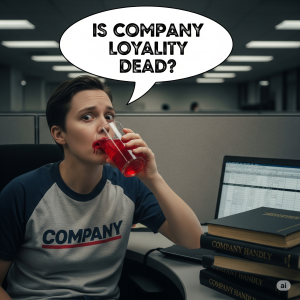The Job Search Noise: Cutting Through the Bad Advice and Scams
Landing a new job can feel like an impossible task, especially when the advice you get is all over the place. From resume length to cover letters, it seems everyone has a "secret formula" for success. The reality is, a lot of this advice is contradictory, and much of it is pushed by people and services looking to make a quick buck off of your desperation.
The Resume: One Page or Two? Fancy or Plain?
This is one of the most common debates in the job-seeking world. Should your resume be a single, perfect page, or can it extend to two? The short answer is: it depends. For recent graduates or those with less than 10 years of experience, a single page is generally the standard. It forces you to be concise and highlight only the most impactful information. However, for senior professionals or those with extensive, diverse experience, a two-page resume is perfectly acceptable. The goal isn't to hit a specific page count, but to include only relevant information that demonstrates your value.
Another point of contention is formatting. Should you use a minimalist, text-based resume, or a more visually appealing one with columns and a splash of color? While a creative resume might stand out for a design role, for most corporate jobs, a clean, simple format is best. Many companies use Applicant Tracking Systems (ATS), which are software programs that scan resumes for keywords. A resume with complex layouts and graphics can sometimes confuse these systems, causing your application to be rejected before a human even sees it.
The Cover Letter: To Write or Not to Write?
The cover letter's relevance is constantly being questioned, and the answer, again, isn't straightforward. Some recruiters say they don't even look at them, while others consider them a critical part of the application. The safest bet is to always write one, especially if it's requested. Even if it isn't, a well-written, tailored cover letter can give you an edge by allowing you to tell your story and connect your experience directly to the job description in a way your resume can't.
A generic cover letter that just rehashes your resume is pointless. A good cover letter should highlight a few key accomplishments and explain why you are a perfect fit for that specific company and role. This shows a genuine interest that goes beyond just wanting any job.
Paying for Professional Help: A Wise Investment or a Scam?
The rise of the "job search guru" has led to a booming industry of professional resume writers, LinkedIn profile optimizers, and career coaches. . While there are legitimate, certified professionals who can provide valuable services, there are also many who are just looking to exploit job seekers. 💰
Before you spend a cent, consider these points:
• Your experience level: If you're early in your career, it's often more beneficial to learn how to write a strong resume yourself. There are countless free resources online. For senior executives or those undergoing a major career change, a professional might be worth the investment, but you should still be involved in the writing process.
• The cost: Legitimate services can range from a few hundred to over a thousand dollars. Be wary of services that promise "guaranteed" jobs or interviews for a low price; these are often red flags.
• The fine print: Many services offer "optimisation for ATS," but this is often a simple matter of including keywords from the job description—something you can (and should) do yourself.
Always research a service thoroughly before paying. Check for reviews, ask for samples, and ensure you're working with a professional who understands your industry.
Too Many Cooks in the Kitchen
The biggest problem with the job market today is the sheer volume of conflicting advice and predatory services. There's an entire ecosystem built around the anxiety of job hunting. From "resume hacks" that don't work to expensive courses that teach you things you could learn for free, job seekers are constantly being told they're doing something wrong.
The best approach is to be your own advocate. Learn the fundamentals of resume writing and interviewing, but don't obsess over every tiny "rule." Focus on what truly matters: tailoring your application to the specific role, quantifying your achievements with data, and being honest and confident in your abilities. Don't fall for the hype or the pressure to pay for a shortcut. Your career is a marathon, not a sprint, and building a strong foundation of skills and confidence is more valuable than any expensive "secret" a guru might sell you.
And in case you are wondering - no I don’t offer paid services to refine your CV, cover letter , Linked In or interview strategy. I happily offer advice for free if you ask!


